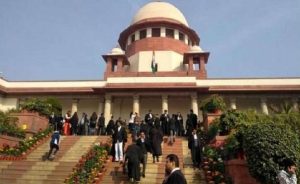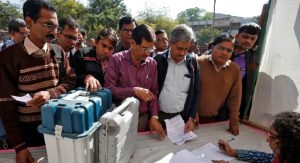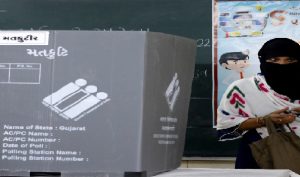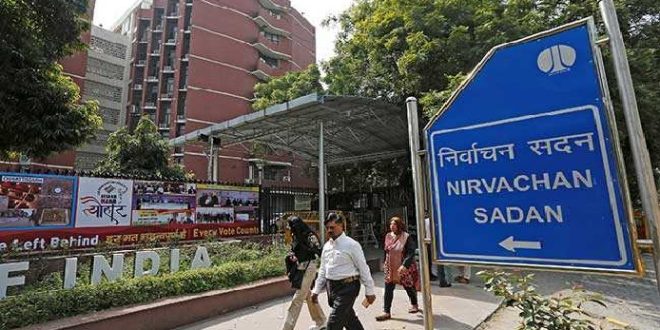03-03-2023
Bureau Report
NEW DELHI: India’s Supreme Court has ordered the setting up of a bipartisan panel that will include the prime minister and the chief justice to select the country’s election commissioners, ending a practice of the government effectively choosing them.
 The Election Commission of India is an autonomous constitutional authority but opposition parties have regularly accused it of caving in to the demands of the ruling party, a charge it has denied.
The Election Commission of India is an autonomous constitutional authority but opposition parties have regularly accused it of caving in to the demands of the ruling party, a charge it has denied.
The new panel will also include the leader of the opposition in the lower house of parliament or the opposition party with the highest number of members in the house.
“This norm will continue to hold good till a law is made by parliament,” said Justice K M Joseph on Thursday.
He was delivering the order of a constitution bench that heard several petitions calling for an independent committee to appoint election commissioners.
“The election commission of India is to perform the arduous and unenviable task of remaining aloof from all forms of subjugation by and interference from the executive,” he said.
Currently, the president of the country, who generally goes by the advice of the government, appoints the chief election commissioner and two commissioners for a tenure of six years each. Typically, they are former bureaucrats.
 Prashant Bhushan, a lawyer representing the petitioners, termed the judgement “historic”.
Prashant Bhushan, a lawyer representing the petitioners, termed the judgement “historic”.
“They have said the independence of the election commission is absolutely essential for democracy, and for that independence to be assured, you cannot have a system where the government alone appoints the election commissioners,” he told reporters outside the court.
India’s former chief election commissioner, S Y Quraishi, said “our long pending demands are being met”.
“At last SC (Supreme Court) has clinched it,” he said in a post on Twitter. “The demand has been pending for two decades. Good for the perception of neutrality of the Election Commission.”
Rasheed Kidwai, journalist and political analyst, told media the judgment will strengthen democracy in India.
“In a democracy, the process is equally important as the outcome. Somehow, many Indian opposition parties have been very dissatisfied with the process with which elections are fought,” he said.
 Kidwai said the role of an election commissioner is like an umpire, a neutral person but “sometimes we saw the elections commissioner not being as impartial as they should be,” he said.
Kidwai said the role of an election commissioner is like an umpire, a neutral person but “sometimes we saw the elections commissioner not being as impartial as they should be,” he said.
“In this sense, the judgment is very welcoming. The integrity of people who become election commissioners should be beyond doubt. It is not about any political party.”
In 2011, Hillary Clinton, a former US secretary of state and presidential candidate, during her visit to India, referred to India’s electoral commission as a “global gold standard” in election management.
The Election Commission of India (ECI), a constitutional authority has successfully conducted 16 general elections since the country’s independence from British rule in 1947.
Voting for India’s multi-phase general elections kicked off last week with 900 million people eligible to vote in the biggest democratic exercise in the world.
 Pressmediaofindia
Pressmediaofindia




